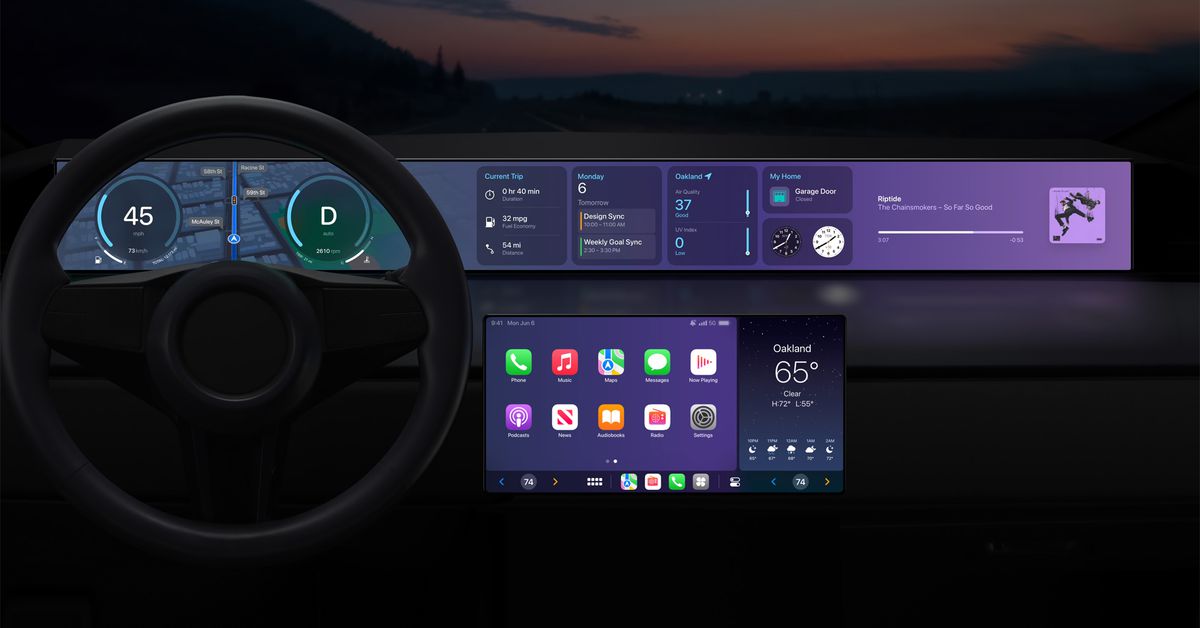Apple’s Surprising Shift: Next-Gen CarPlay Delayed Beyond 2024
In a surprising turn of events, Apple has announced that the eagerly awaited next-generation CarPlay will not make its debut in 2024 as many industry experts and enthusiasts anticipated. This revelation has sent ripples through the automotive and tech worlds, raising critical questions about Apple’s strategy in the rapidly evolving automotive landscape and its long-term vision for in-car technology.
Understanding the Delay of Next-Gen CarPlay
Initially unveiled at the 2021 Worldwide Developers Conference (WWDC), Apple’s next-gen CarPlay promised to revolutionize the driving experience by integrating deeper with vehicle hardware, offering features like multi-screen support and enhanced personalization. The delay beyond 2024 indicates potential challenges Apple is facing in the development process or perhaps a strategic pivot to refine its offerings further.
Industry analysts speculate that this postponement could stem from several factors:
- Technical Challenges: Developing a system that seamlessly integrates with various vehicle architectures is no small feat. Apple may be prioritizing system stability and user experience over a rushed release.
- Market Dynamics: As competition in the automotive tech space intensifies, Apple might be recalibrating its approach to ensure that its next-gen CarPlay stands out from rivals like Android Auto and Tesla’s in-car systems.
- Regulatory Compliance: With increasing scrutiny on tech companies and their data practices, Apple may be taking extra steps to ensure its new CarPlay adheres to all necessary regulations, particularly concerning user privacy.
The Impact of the Delay on Automotive Innovation
The delay of next-gen CarPlay beyond 2024 could have far-reaching implications for the automotive industry. As automakers increasingly embrace digital transformation, many have been counting on Apple’s innovations to enhance their own vehicle offerings. With this setback, manufacturers may need to reconsider their strategies and timelines regarding in-car technology integration.
- Partnerships in Question: The delay may strain partnerships between Apple and various automakers who had planned to launch vehicles featuring next-gen CarPlay. Major players like Ford, Honda, and Nissan had expressed enthusiasm about the integration of this advanced system.
- Consumer Expectations: As consumers become accustomed to high-tech features in their vehicles, the anticipation for a new, innovative CarPlay may lead to disappointment. This could affect sales and customer loyalty for brands that had planned to showcase this technology.
What’s Next for Apple and CarPlay?
Despite the setback, Apple remains a formidable player in the automotive tech space. The company has a history of innovation and disruption, and this delay could be a sign of Apple’s commitment to delivering a product that meets the high standards it has set for itself and its consumers.
Here are some potential directions Apple might take as it moves forward:
- Enhanced Features: The additional time could allow Apple to refine features that enhance user experience, such as more intuitive voice controls, improved navigation systems, and deeper integration with smart home devices.
- Broader Ecosystem Integration: Apple could leverage its existing ecosystem, including the Apple Watch and HomePod, to create a more interconnected experience for users both in and out of the vehicle.
- Focus on Electric Vehicles (EVs): As the automotive industry shifts towards electric vehicles, Apple could align its CarPlay developments with emerging EV technologies, possibly integrating charging solutions and energy management systems.
Consumer Perspectives on the Delay
Consumers have shown a keen interest in the advancements Apple planned to introduce with next-gen CarPlay. The ability to control more vehicle functions through a familiar iOS interface was a significant draw. However, this delay might lead to mixed feelings among users:
- Disappointment: Enthusiastic Apple fans who were eagerly awaiting the enhanced features of CarPlay may feel let down by the news.
- Patience for Quality: Some consumers may appreciate that Apple is taking the time to ensure the product is polished and functional before launch, valuing quality over speed.
Industry Reactions and Future Speculations
The automotive and tech industries have responded cautiously to the announcement. Many stakeholders are now speculating on how this delay will affect the competitive landscape. With companies like Google and Tesla continuously innovating, Apple must act strategically to maintain its edge.
Experts suggest that Apple might consider the following strategies to reassert its position:
- Increased Collaboration: Apple could deepen its collaborations with automakers to ensure that CarPlay is not only user-friendly but also seamlessly integrated with vehicle systems.
- Expanding Developer Access: By broadening access to developers, Apple could encourage third-party innovations that expand the utility of CarPlay, enriching the overall user experience.
- Continuous Feedback Loops: Apple may establish channels for ongoing user feedback to ensure that its developments align closely with consumer needs and preferences.
Conclusion: A Time for Reflection and Innovation
The delay of next-gen CarPlay beyond 2024 is a pivotal moment for Apple and the automotive industry. While it may be seen as a setback, it also presents an opportunity for reflection and innovation. Apple has a unique ability to transform entire industries, and this pause could lead to a more robust and groundbreaking product that redefines the driving experience. As the tech giant navigates this unexpected shift, the world will be watching closely, eager to see how it shapes the future of automotive technology.
In the end, the anticipation surrounding next-gen CarPlay remains high, and if history has taught us anything, it’s that Apple often delivers remarkable innovations when the time is right.
See more Future Tech Daily

